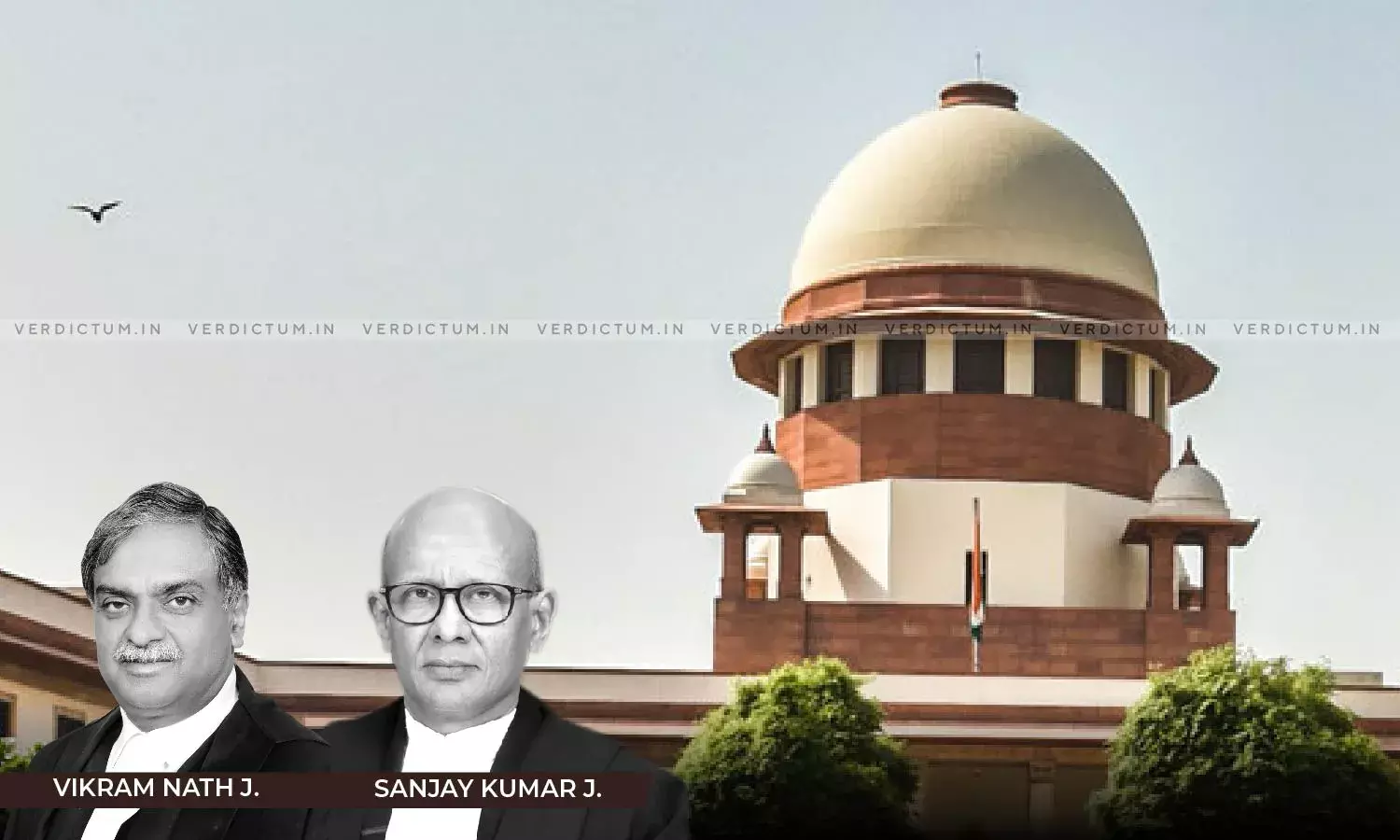Granting Anticipatory Bail To Police Officer Accused Of Manipulating Investigation Would Send Out Wrong Signal In Society: SC
The Supreme Court held that granting the relief of anticipatory bail to a police officer facing allegations of manipulating an investigation would send out a wrong signal in society.
The police officer who was the investigating officer in a criminal case was accused of allegedly making a wrongful arrest by making interpolations in the FIR filed for the case.
The anticipatory bail petition filed by the police officer was rejected by the trial court on the ground that “interpolations in the FIR were clearly visible to the naked eye and that there were sufficient materials indicating the involvement of the respondent in the alleged offence.”
However, the Jharkhand High Court granted the police officer anticipatory bail without recording any reasons.
Justice Vikram Nath and Justice Sanjay Kumar observed, “Ordinarily, an accused facing the prospect of incarceration, if proved guilty of such offences, would be entitled to the relief of pre-arrest bail. However, the same standard would not be applicable when the accused is the Investigating Officer, a police officer charged with the fiduciary duty of carrying forward the investigation to its rightful conclusion so as to punish the guilty.”
AOR Tulika Mukherjee represented the appellant, while Advocate Anup Kumar appeared for the respondent.
In light of the serious allegations made against the police officer, the Supreme Court stated that the “High Court ought not to have taken a liberal view in the matter for the mere asking.” The Court remarked that it was the responsibility of the police officer to ensure the sanctity of an FIR.
The Court remarked that the presumptions and other considerations applicable to a layperson facing criminal charges may not carry the same weight while dealing with a police officer who was alleged to have abused his office.
While the alleged offences against the police officer entail a maximum imprisonment of seven years and are mostly bailable, “however, the same standard would not be applicable when the accused is the Investigating Officer, a police officer charged with the fiduciary duty,” noted the Court.
The Court held that “it is unfortunate that the High Court did not deem it necessary to record as to what weighed with it while granting pre-arrest bail to the respondent. More so, as the accused, a member of a uniformed service, was holding the responsible position of Officer-in-Charge of a police station apart from being the Investigating Officer in the case.”
Accordingly, the Supreme Court set aside the order of the High Court and allowed the appeal.
Cause Title: The State of Jharkhand v. Sandeep Kumar (Neutral Citation: 2024 INSC 179)
Appearance:
Appellant: Addl. Standing Counsel Saurabh Jain; AOR Tulika Mukherjee; Advocates Beenu Sharma and Venkat Narayan
Respondent: AOR Devvrat; Advocates Anup Kumar, Shekhar Prasad Gupta, Neha Jaiswal, Shruti Singh, Ashutosh Jha and Pragya Choudhary




